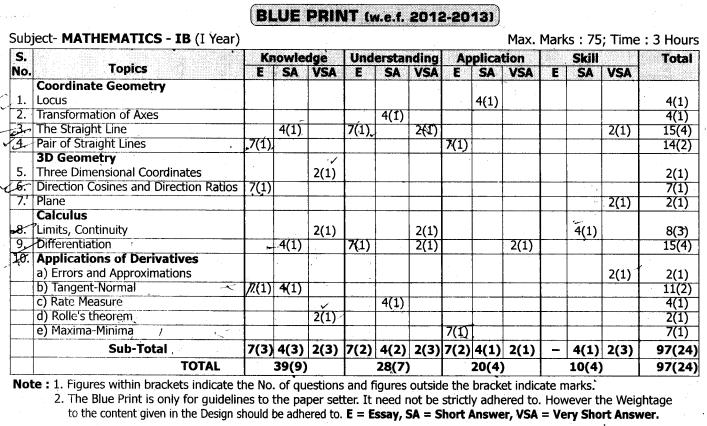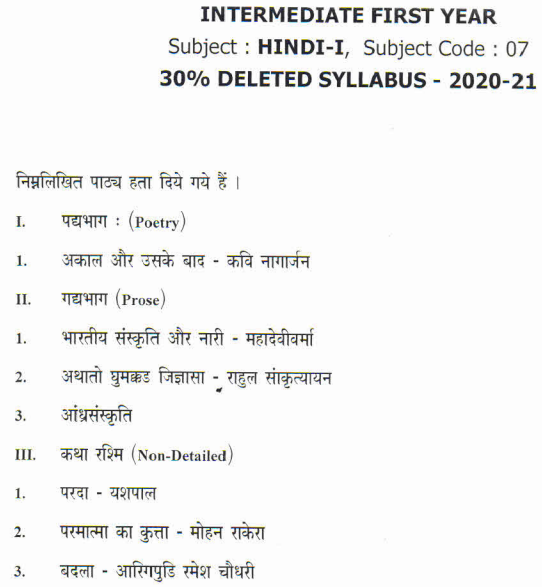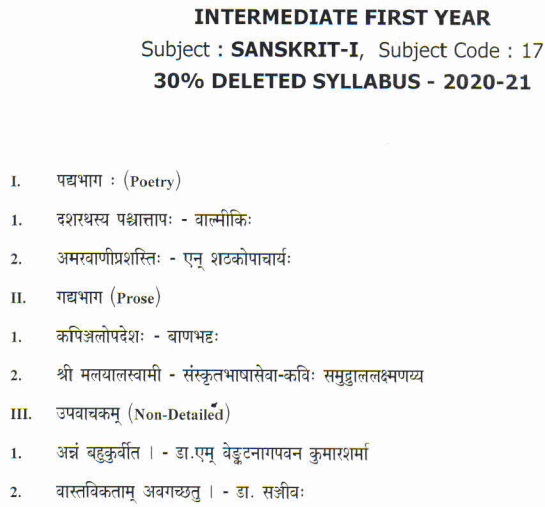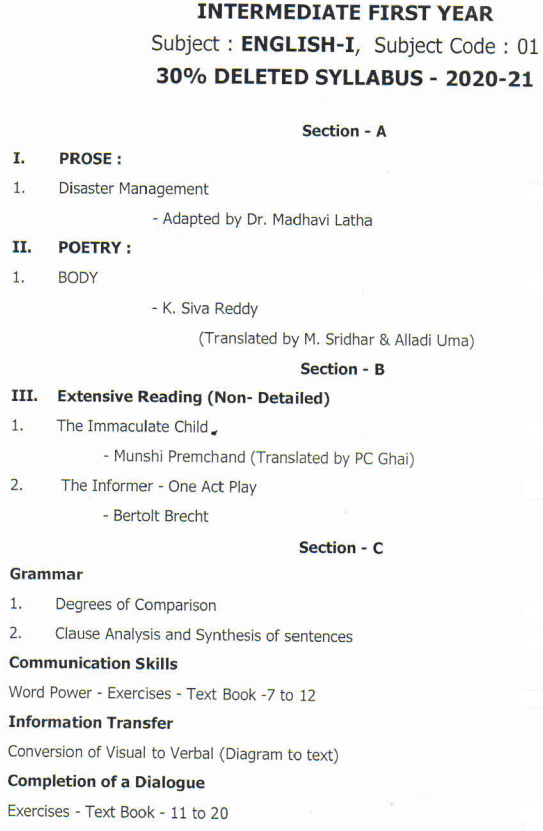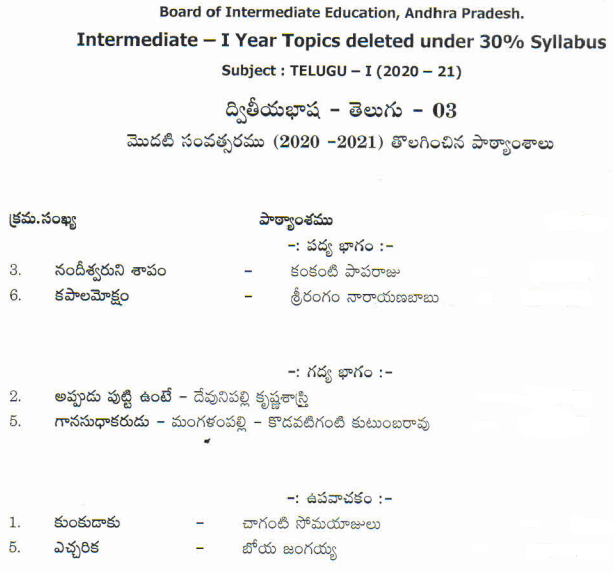Telangana & Andhra Pradesh BIEAP TS AP Intermediate Inter 1st Year Maths 1A Textbook Solutions Study Material Guide PDF Free Download, Inter 1st Year Maths 1A Blue Print Weightage 2022-2023, Maths 1A Study Material Questions and Answers Solutions in English Medium and Telugu Medium are part of AP Inter 1st Year Study Material Pdf.
Students can also go through Inter 1st Year Maths 1A Formulas PDF to understand and remember the concepts easily. Students can also read Inter 1st Year Maths 1A Syllabus & Inter 1st Year Maths 1A Important Questions Chapter Wise with Solutions Pdf 2022-2023 for exam preparation.
Inter 1st Year Maths 1A Textbook Solutions PDF | Intermediate Maths 1A Solutions PDF
Inter 1st Year Maths 1A Functions Solutions
Inter 1st Year Maths 1A Mathematical Induction Solutions
Inter 1st Year Maths 1A Matrices Solutions
- Chapter 3 Matrices Ex 3(a)
- Chapter 3 Matrices Ex 3(b)
- Chapter 3 Matrices Ex 3(c)
- Chapter 3 Matrices Ex 3(d)
- Chapter 3 Matrices Ex 3(e)
- Chapter 3 Matrices Ex 3(f)
- Chapter 3 Matrices Ex 3(g)
- Chapter 3 Matrices Ex 3(h)
- Chapter 3 Matrices Ex 3(i)
Inter 1st Year Maths 1A Addition of Vectors Solutions
Inter 1st Year Maths 1A Products of Vectors Solutions
- Chapter 5 Products of Vectors Ex 5(a)
- Chapter 5 Products of Vectors Ex 5(b)
- Chapter 5 Products of Vectors Ex 5(c)
Inter 1st Year Maths 1A Trigonometric Ratios up to Transformations Solutions
- Chapter 6 Trigonometric Ratios up to Transformations Ex 6(a)
- Chapter 6 Trigonometric Ratios up to Transformations Ex 6(b)
- Chapter 6 Trigonometric Ratios up to Transformations Ex 6(c)
- Chapter 6 Trigonometric Ratios up to Transformations Ex 6(d)
- Chapter 6 Trigonometric Ratios up to Transformations Ex 6(e)
- Chapter 6 Trigonometric Ratios up to Transformations Ex 6(f)
Inter 1st Year Maths 1A Trigonometric Equations Solutions
Inter 1st Year Maths 1A Inverse Trigonometric Functions Solutions
Inter 1st Year Maths 1A Hyperbolic Functions Solutions
Inter 1st Year Maths 1A Properties of Triangles Solutions
Inter 1st Year Maths 1A Textbook Solutions in Telugu Medium
Inter 1st Year Maths 1A ప్రమేయాలు Solutions
Inter 1st Year Maths 1A గణితానుగమనం Solutions
Inter 1st Year Maths 1A మాత్రికలు Solutions
- Chapter 3 మాత్రికలు Ex 3(a)
- Chapter 3 మాత్రికలు Ex 3(b)
- Chapter 3 మాత్రికలు Ex 3(c)
- Chapter 3 మాత్రికలు Ex 3(d)
- Chapter 3 మాత్రికలు Ex 3(e)
- Chapter 3 మాత్రికలు Ex 3(f)
- Chapter 3 మాత్రికలు Ex 3(g)
- Chapter 3 మాత్రికలు Ex 3(h)
- Chapter 3 మాత్రికలు Ex 3(i)
Inter 1st Year Maths 1A సదిశల సంకలనం Solutions
Inter 1st Year Maths 1A సదిశల గుణనం Solutions
- Chapter 5 సదిశల గుణనం Ex 5(a)
- Chapter 5 సదిశల గుణనం Ex 5(b)
- Chapter 5 సదిశల గుణనం Ex 5(c)
Inter 1st Year Maths 1A త్రికోణమితీయ నిష్పత్తులు, పరివర్తనలు Solutions
- Chapter 6 త్రికోణమితీయ నిష్పత్తులు, పరివర్తనలు Ex 6(a)
- Chapter 6 త్రికోణమితీయ నిష్పత్తులు, పరివర్తనలు Ex 6(b)
- Chapter 6 త్రికోణమితీయ నిష్పత్తులు, పరివర్తనలు Ex 6(c)
- Chapter 6 త్రికోణమితీయ నిష్పత్తులు, పరివర్తనలు Ex 6(d)
- Chapter 6 త్రికోణమితీయ నిష్పత్తులు, పరివర్తనలు Ex 6(e)
- Chapter 6 త్రికోణమితీయ నిష్పత్తులు, పరివర్తనలు Ex 6(f)
Inter 1st Year Maths 1A త్రికోణమితీయ సమీకరణాలు Solutions
- Chapter 7 త్రికోణమితీయ సమీకరణాలు Ex 7(a)
Inter 1st Year Maths 1A విలోమ త్రికోణమితీయ ప్రమేయాలు Solutions
- Chapter 8 విలోమ త్రికోణమితీయ ప్రమేయాలు Ex 8(a)
Inter 1st Year Maths 1A అతిపరావలయ ప్రమేయాలు Solutions
- Chapter 9 అతిపరావలయ ప్రమేయాలు Ex 9(a)
Inter 1st Year Maths 1A త్రిభుజ ధర్మాలు Solutions
- Chapter 10 త్రిభుజ ధర్మాలు Ex 10(a)
- Chapter 10 త్రిభుజ ధర్మాలు Ex 10(b)
Inter 1st Year Maths 1A Blue Print Weightage 2022-2023 | Blueprint of Intermediate 1st Year Maths 1A
AP Inter 1st Year Maths 1A Blue Print | Inter 1st Year Maths 1A Weightage 2022-2023
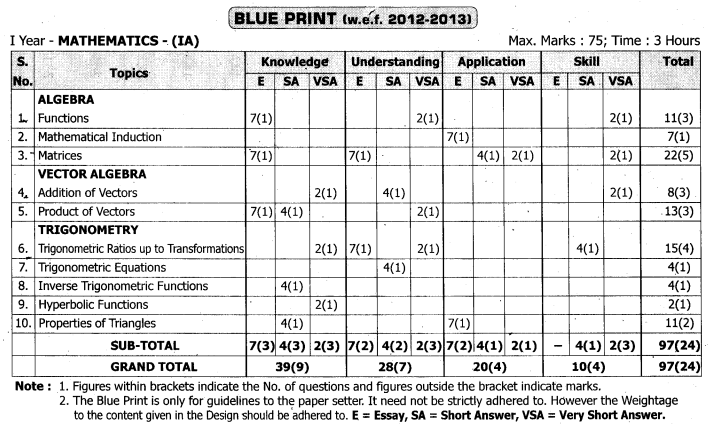
AP Intermediate 1st Year – MATHS IA Modified Weightage of Marks (Blueprint)
| TOPICS | 7M | 4M | 2M | TOTAL |
| 1. Functions | 7M | 2+2M | 11 | |
| 2. Mathematical Induction : DELETED | 0 | |||
| 3. Matrices | 7+7M | 4M | 2+2M | 22 |
| 4. VECTOR ALGEBRA Addition of Vectors : | 7M | 4M | 2+2 | 15 |
| 5. Vector Algebra Muliplication Vectors : | 7M | 4M | 2M | 13 |
| 6. TRIGONOMETRY Trigonometric Ratios up to Transformations : | 7M | 4+4+4M | 2+2 | 23 |
| 7. Trigonometric Equations: DELETED | 0 | |||
| 8. Inverse Trigonometric Functions: DELETED | 0 | |||
| 9. Hyperbolic Functions: | 2M | 2 | ||
| 10. Properties of Triangles: | 7M | 4M | 11 | |
| 49 | 28 | 20 | 97 |
AP Intermediate 1st Year – MATHS IB Modified Weightage of Marks (Blueprint)
| S.No | TOPICS | 2M | 4M | 7M | TOTAL |
| 1 | COORDINATE GEOMETRY Locus : | 4+4M | 8 | ||
| 2 | The Straight Line : | 2+2M | 4M | 7M | 15 |
| 3 | Pair of Straight lines: | 7+7M | 14 | ||
| 4 | Three Dimensional Coordinates : | 2 | 2 | ||
| 5 | Plane: | 2 | 2 | ||
| 6 | Direction Cosines and Direction Ratios : | 7M | 7 | ||
| 7 | CALCULUS Limits and Continuity: | 2+2 | 4M | 8 | |
| 8 | Differentiation : | 2+2 | 4M | 7M | 15 |
| 9 | Tangents and normals | 2M | 4M | 7M | 13 |
| 10 | Increasing and decreasing functions. | 2M | 4M | 6 | |
| 11 | Maxima and Minima. | 7M | 7 | ||
| 20 | 28 | 49 | 97 |
Inter 1st Year Maths 1A Syllabus | Intermediate First Year Maths 1A Syllabus
Intermediate 1st Year Maths 1A Syllabus Algebra
Chapter 1 Functions (16 Periods)
Types of functions – Definitions, Inverse functions, and Theorems, Domain, Range, Inverse of real-valued functions
Chapter 2 Mathematical Induction (8 Periods)
Principle of Mathematical Induction & Theorems, Applications of Mathematical Induction, Problems on divisibility
Chapter 3 Matrices (28 Periods)
Types of matrices, Scalar multiple of a matrix and multiplication of matrices, Transpose of a matrix, Determinants, Adjoint and Inverse of a matrix, Consistency, and inconsistency of Equations – Rank of a matrix, Solution of simultaneous linear equations
Inter 1st Year Maths 1A Syllabus Vector Algebra
Chapter 4 Addition of Vectors (18 Periods)
Vectors as a triad of real numbers, Classification of vectors, Addition of vectors, Scalar multiplication, Angle between two non zero vectors, Linear combination of vectors, Component of a vector in three dimensions, Vector equations of line and plane including their Cartesian equivalent forms
Chapter 5 Product of Vectors (28 Periods)
Scalar product – Geometrical Interpretations – Orthogonal projections, Properties of the dot product, Expression of the dot product in i, j, k system – Angle between two vectors, Geometrical Vector methods, Vector equations of the plane in normal form, Angle between two planes, Vector product of two vectors and properties, Vector product in i, j, k system, Vector Areas, Scalar Triple product, Vector equations of the plane in different forms, skew lines, shortest distance and their Cartesian equivalents. A plane through the line of intersection of two planes, condition for coplanarity of two lines, perpendicular distance of a point from a plane, Angle between line and a plane. Cartesian equivalents of all these results, Vector Triple Product – Results
Intermediate First Year Maths 1A Syllabus Trigonometry
Chapter 6 Trigonometric Ratios up to Transformations (20 Periods)
Graphs and Periodicity of Trigonometric functions, Trigonometric ratios, and Compound angles, Trigonometric ratios of multiple and sub-multiple angles, Transformations – Sum and Product rules
Chapter 7 Trigonometric Equations (5 Periods)
The general solution of Trigonometric Equations, Simple Trigonometric Equations – Solutions
Chapter 8 Inverse Trigonometric Functions (7 Periods)
To reduce a Trigonometric function into a bijection, Graphs of Inverse Trigonometric Functions, Properties of Inverse Trigonometric Functions
Chapter 9 Hyperbolic Functions (4 Periods)
Definition of Hyperbolic Function – Graphs, Definition of inverse Hyperbolic Functions – Graphs, Addition formulas of Hyperbolic Functions
Chapter 10 Properties of Triangles (16 Periods)
Relation between sides and angles of a Triangle, Sine, Cosine, Tangent, and Projection rules, Half angle formulae and areas of a triangle, In-circle and Ex-circle of a Triangle
Maths taught in Cass 11 is a bit analytical and practicing Maths daily will become one of the most interesting and favourite subjects for the students. Important questions for AP Intermediate 1st Year Maths is a fruitful resource for the students as there is a sudden advancement in the level of difficulty in the subject.
The Board of Intermediate Education swung into action with the task of evolving a revised syllabus on par with the main intention being enabling the students from our state to prepare for the national level common entrance tests, like NEET, ISEET, etc. These Inter 1st Year Maths 1A Study Material will prove to be a useful study tool during exam preparation. keeping this task in view a committee of subject experts along with authorities in the department of BIE, strongly decided to adopt the NCERT textbooks from the academic year 2012-2013 on words.
This Intermediate 1st Year Maths 1A Textbook Solutions PDF Download is brought up in accordance with the New Telugu Academy Inter 1st Year Maths 1A Textbook PDF English Medium. The subject is presented in a lucid way. So that each and every student understands the subject easily. All Problems have been solved for the benefit of students. These Inter 1st Year Maths 1A Textbook Solutions PDF is given will help the students to get an idea of the different types of questions that can be framed in an examination.
A lot of care and attention has gone into the derivation of solutions to problems and clear illustrations have been provided where necessary. The alternative method is also discussed for some problems, to understand the students and solve them easily. With the help of this Intermediate Maths 1A Solutions PDF, the student gets the style of answering and scope of the answer which helps him in getting the highest marks in the Public Examinations.
Intermediate 1st Year Maths 1A Textbook Solutions
- All textual problems are solved.
- Diagrams are drawn wherever necessary.
- To solve Questions, a formula relating to that problem is also given to understand the students easily.
- The newly introduced problems are solved in a better way.
We hope that this Intermediate 1st Year Maths 1A Textbook Solutions PDF Download helps the student to come out successful with flying colors in this examination. We wish that this Inter 1st Year Maths 1A Textbook Solutions PDF will win the hearts of the students and teaching faculty. These Inter 1st Year Maths 1A Study Material will help students to gain the right knowledge to tackle any type of questions that can be asked during the exams.
